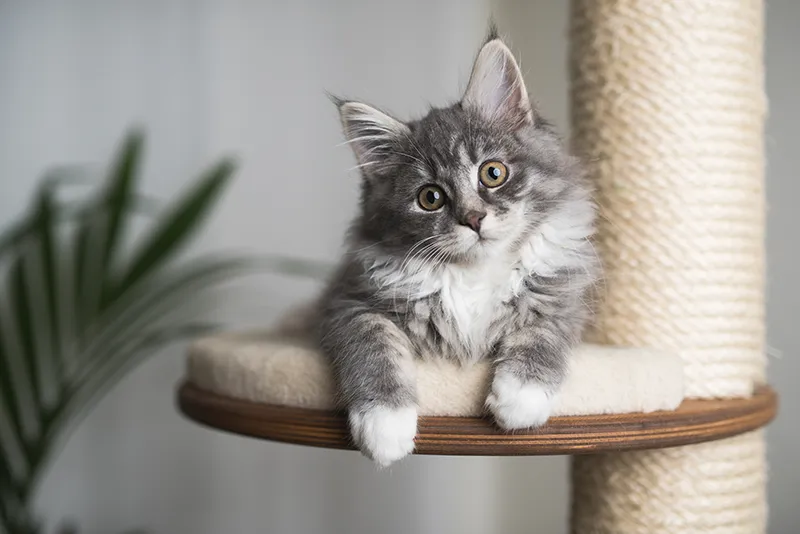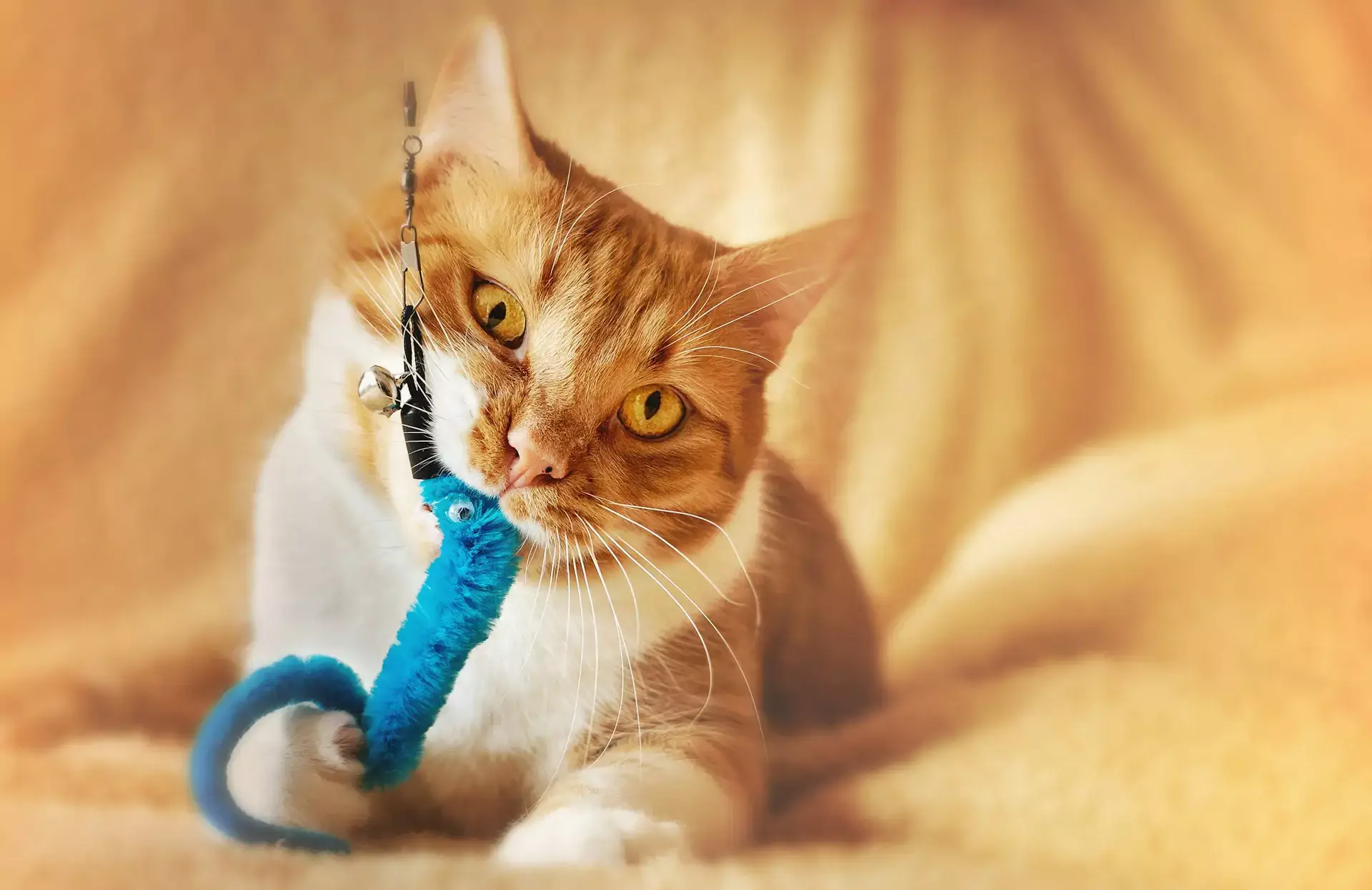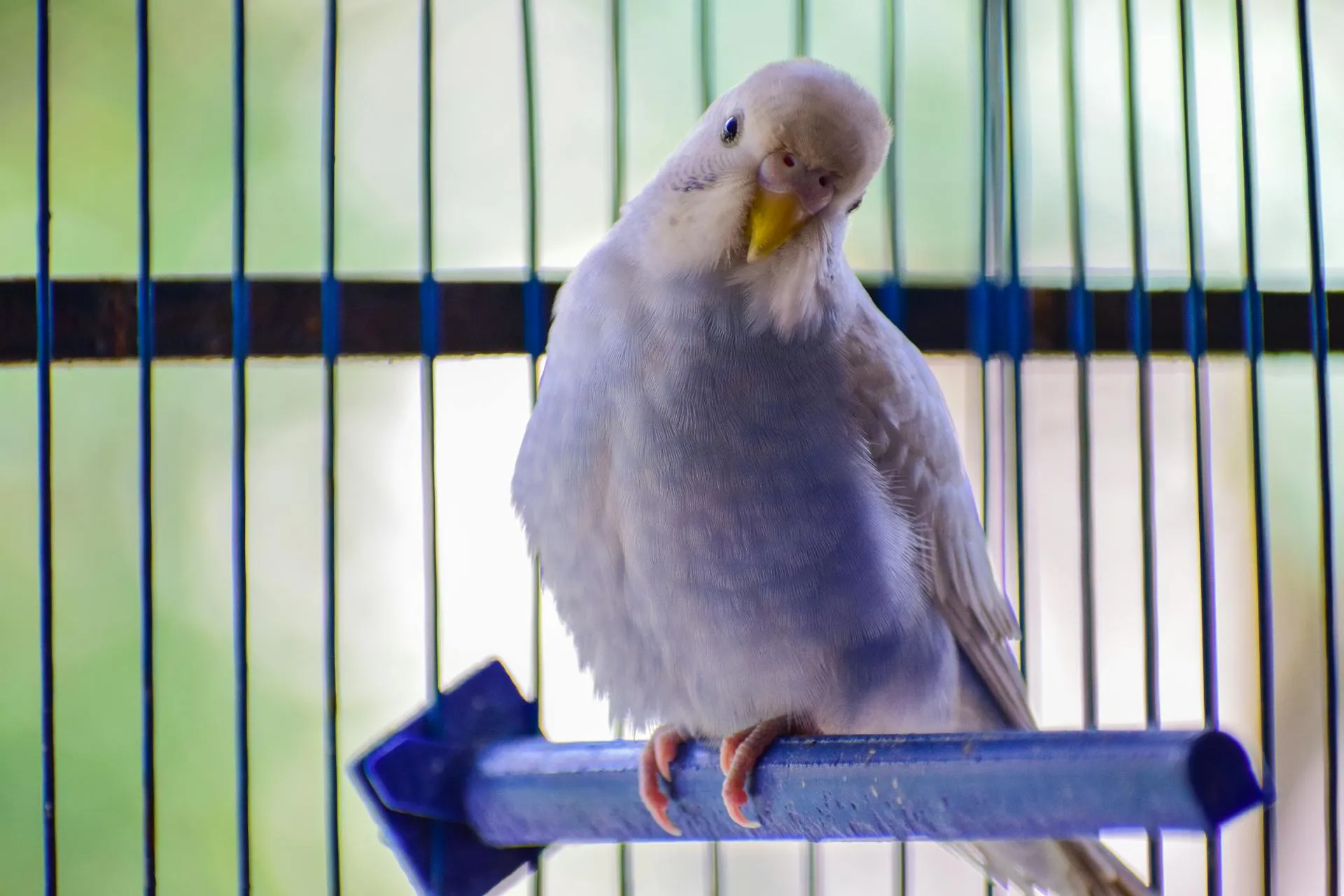National Feline Infectious Peritonitis (FIP) Awareness is a dangerous disease that everyone with a kitty should know about. We know, that’s a bit of a mouthful. For those of us in the veterinary care industry, we usually use the acronym FIP for Feline Infectious Peritonitis. This is a painful condition that can seriously affect your feline pal’s health and well-being. Read on as a local Middletown, DE vet answers some questions about FIP.
What Is Feline Infectious Peritonitis?
FIP is caused by a virus: specifically, a feline coronavirus. Normally, this coronavirus is pretty harmless. It’s also quite common, almost like the common cold. However, the mutation can lead to some very serious, and potentially deadly, complications.
Is Feline Coronavirus Dangerous?
Feline coronavirus is not always particularly dangerous. In fact, most of the time, Fluffy will recover easily. Many cats only have very mild symptoms. You may not even notice that anything is wrong! However, some of our feline pals do get complications, which can lead to FIP. Kitties that are seniors or are immune-compromised are particularly at risk.
What Are Feline Coronaviruses?
Keep in mind that COVID-19 is not the only coronavirus. The feline coronavirus is not the same as COVID-19. It cannot affect humans. It’s only one of a group of coronaviruses. In animals, coronaviruses usually affect the respiratory or digestive systems.
It’s quite common for cats to be infected with coronavirus. In fact, some research indicates that between 25 and 40 percent of pet felines have been infected with FCoV.
The risk is highest in places where there are many kitties present. For kitties that live among other cats, such as those in colonies, shelters, or even multi-cat households, the infection rate may be as high as 100 percent. However, most of the time the kitty’s symptoms are so mild they are undetectable. Some cats also just get a bout of diarrhea.
Who Is Bria?
As you may know, many specific animal holidays, causes, and charities have mascots: usually a special pet who awakens awareness of an issue in a certain person or group of people. In this case, that pet is an adorable kitten named Bria, a beautiful lynx blue point Birman with a penchant for playing Fetch and a love for peanut butter and jelly sandwiches.
Bria was adopted by Susan Gingrich and her husband, Jim. As you may have guessed, the sweet kitty died from complications of FIP. Heartbroken, Susan devoted herself to spreading awareness about the disease. She approached the EveryCat Health Foundation, which was then known as the Winn Feline Foundation. It is the only organization on the planet whose main goal is funding research on feline health issues. The Bria Fund for FIP Research came into being soon after.
How Do Cats Get FIP?
The most common ways for kitties to get FIP is by sharing litterboxes with an infected cat.
Do All Kitties With FCoV Get Very Sick?
Actually, no. The majority of cats that get FCoV experience mild symptoms and/or recover quickly. About 12 percent go on to develop FIP.
What Are The Risk Factors For FIP?
Any cat who has had feline coronavirus is at risk of FIP. However, some kitties are more at risk than others.
Age definitely plays a role. FIP usually affects younger felines. In fact, the majority of the cases are kitties that are younger than 18 months. About half are under six months old. Geriatric cats are also more at risk. Finally, purebred cats may also be particularly susceptible.
Ask your Middletown, DE vet for more information.
How Is Feline Coronavirus Spread?
The feline coronavirus is a viral disease. It can be spread through a variety of ways. Nursing mamas may pass it onto their kittens. Cats can also infect each other through mutual grooming, sharing bowls, toys, or litterboxes, mating, or fighting.
Because it is an infectious disease, feline coronavirus is most often found in places that have a lot of cats, such as animal shelters, catteries, or feral cat colonies.
How Long Can A Kitty Live With Fio?
There’s no cut-and-dried answer to this. It depends on the kitty’s health, and whether they have been infected by the effusive form or the non-effusive form. That said, the prognosis isn’t great: estimates generally would be days to weeks for the effusive form of the virus, and weeks to months for the non-effusive. Your vet can give you more specific information after evaluating your cat.
What Are The Signs Of FIP?
The signs of FIP can be confusing, as many of them can be indicative of a wide variety of illnesses. This is one reason we always, always always recommend taking Fluffy to the vet as soon as you notice anything wrong.
These include the following:
- Abdominal Bloating
- Respiratory Issues
- Persistent Fever
- Reduced Appetite
- Weight Loss
- Depression
- Withdrawal
- Unkempt Fur
Reach out to your vet right away if you notice any of these things. Keep in mind that symptoms can progress very quickly with FIP.
It’s worth noting that FIP sometimes doesn’t develop for weeks, months, or even years after that initial coronavirus infection.
How Is FIP Treated?
Unfortunately, there is no official cure for FIP. Prevention is really your best option here. Treatment efforts are usually focused on supportive care. This may entail things like making sure Fluffy is getting enough fluids. Your vet may also recommend specific medications, such as prednisone or cyclophosphamide. These are immune suppressives that may help by slowing down the progression of the disease. However,it’s important to understand that there really isn’t a cure.
That said, there is some good news here. Research that has been conducted over the past three years indicates that antivirals may be effective against FIP. Remdesivir and GS-441524 have been available legally in the UK and Australia since 2021. (Unfortunately, this has also led to a rise in illegal medications, but that’s another topic.)
If your feline friend is diagnosed, your vet will be able to discuss options with you on a case by case basis.
What Can You Do To Protect Your Feline Friend From Fip?
Fortunately, basic good cat care will go a long way towards keeping your feline buddy happy, healthy, and purring. First and foremost keep up with Fluffy’s preventative care. That includes her veterinary exams, parasite control, and vaccinations.
Keeping the litterbox clean is also important. We recommend scooping daily and changing the litter about once a week. If you have more than one kitty, you would also want more than one box. Fluffy’s powder room should be in a quiet spot, one that isn’t near her food or water. The litterbox also shouldn’t be in a drafty area or direct sunlight.
You will want to take some extra precautions if you have more than one cat. Make sure that your feline pals don’t have to share litterboxes or food bowls. We also would strongly recommend keeping your kitty safe and sound inside.
Be sure to ask your Middletown, DE vet for more information on protecting your feline buddy from FIP.
Make An Appointment At Our Middletown, DE Pet Clinic
Do you have questions about your feline friend’s health or care? Please feel free to contact us anytime. As your local Middletown, DE pet hospital, we are here to help!







!Social Media Icons